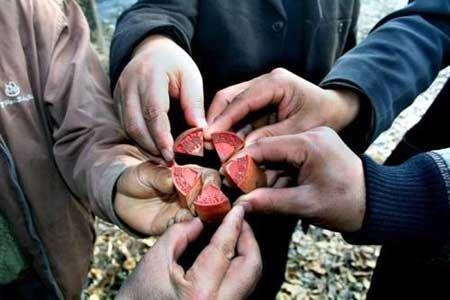
Tan Yuanhai, Guiye Village Representative, said, "The system is to supervise our officials and whether the money is used for the villagers' interests. If officials use the money for reasons that villagers cannot agree to, they can't get reimbursed."
The five-piece stamp practice began in 2006. Before, the lack of supervision led to distrust among the villagers over the officials' handling of the financial affairs.
Long Yuegang, Villager of Guiye Village of Guizhou, said, "Now, there are five representatives supervising the officials for us. We can rest assured because we voted for them."
Zhang Luanfeng, villager of Guiye Village of Guizhou, said, "I think the policy is good. Before, we really had doubts. It wasn't transparent and we didn't know where they used the money."
Elected by the entire village, representatives say they put the people's interests first.
Tan Hongcan, Guiye Village Representative, said, "So far this year, we've rejected two invoices. One concerned buying food for treating leaders. We agreed that the official did it for personal purposes. So we refused. It wasn't for the village."
Since the five-piece seal was adopted, there've been no more complaints about the use of public funds in Guiye.
The stamp is seen as part of the democratic progress at the grassroots level. The significance lies in far more than a clean account--it's the democratic idea of power-sharing and supervision.
It may be seen just as an exploration, but the practice may help the country's efforts for achieving democracy for all.
Developing a democratic progress begins at the village level. Jinping County has encouraged more than 100 villages to follow Guiye to protect villagers' right to participate in and supervise village affairs.
(CCTV September 16, 2009)